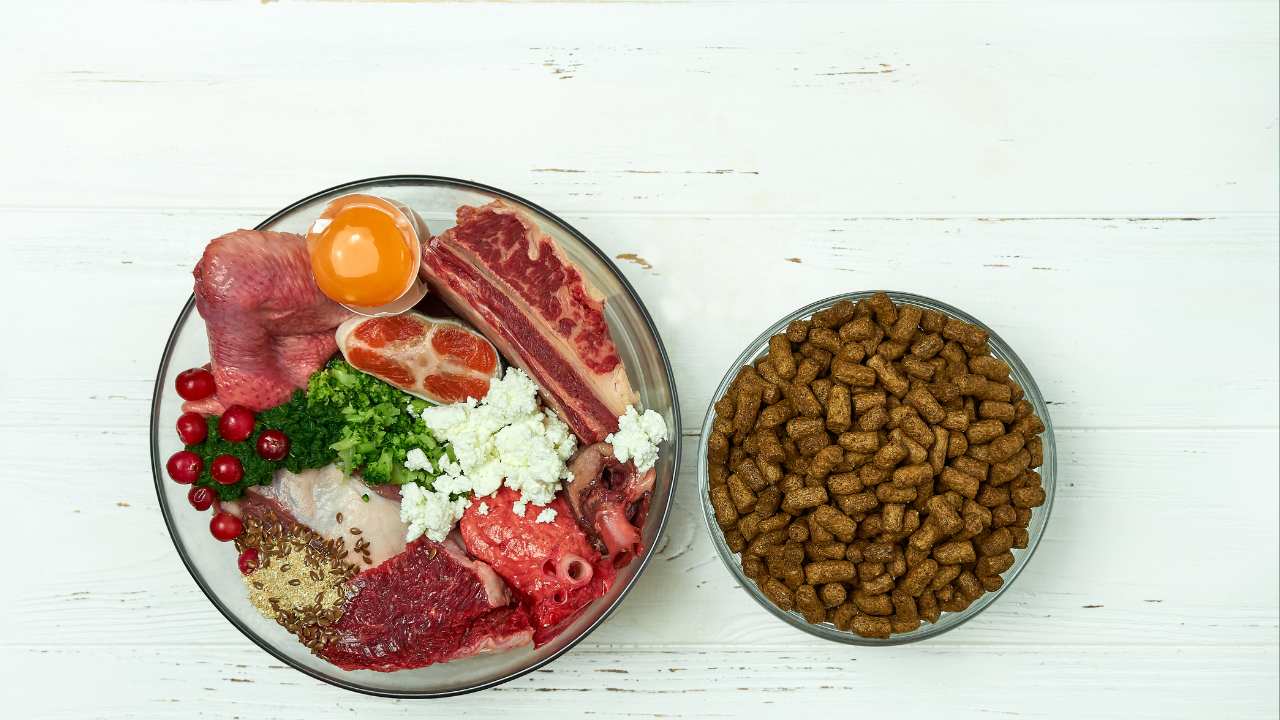Cesar dog food is a well-known brand among pet owners, specifically for its high-quality and gourmet-style meals tailored for dogs. But an intriguing question often arises—can humans eat Cesar dog food, and is it safe for them? While dog food is formulated to meet the nutritional needs of canines, humans sometimes wonder if it’s consumable due to its enticing aroma and appealing presentation. In this article, we’ll explore the safety, nutritional value, and risks of consuming Cesar dog food as a human, diving deep into expert opinions, ingredient analysis, and real-world examples.
Understanding Cesar Dog Food Ingredients
Cesar dog food is crafted with ingredients aimed at providing balanced nutrition for dogs. The primary components often include:
- Meat and Animal Derivatives: These are the main sources of protein in dog food, often derived from beef, chicken, or lamb.
- Vegetables: Cesar dog food contains vegetables like carrots and peas, which provide essential vitamins and minerals.
- Cereals: These serve as a source of carbohydrates to fuel your pet’s energy needs.
- Additives and Preservatives: Cesar dog food includes preservatives to maintain shelf life and enhance taste, which are safe for dogs but may not align with human dietary standards.
While these ingredients may seem harmless to humans, the proportions and specific additives are tailored exclusively for canine consumption.
Nutritional Differences Between Dog Food and Human Food
Dog food, including Cesar, is formulated to meet the dietary requirements of dogs, which differ significantly from human needs. Here are the key differences:
Protein Content: Dogs require higher protein levels, while humans need a balance of protein, carbohydrates, and fats.
Vitamins and Minerals: Cesar dog food may include nutrients that are beneficial for dogs but unnecessary or even harmful to humans, such as higher levels of vitamin D.
Fiber Content: Dog food often has lower fiber content compared to human diets.
Additives: Cesar dog food contains preservatives and flavor enhancers approved for dogs, but their long-term effects on humans are unknown.
Is Cesar Dog Food Safe for Human Consumption?
Technically, Cesar dog food is not considered toxic to humans. The ingredients used are generally safe for consumption, but they are not held to the same regulatory standards as human food. The U.S. Food and Drug Administration (FDA) oversees pet food production, ensuring safety for animals but not necessarily humans. Key considerations include:
- Edibility: While eating a small amount of Cesar dog food might not cause immediate harm, its long-term consumption is not recommended.
- Taste and Texture: Cesar dog food is crafted to appeal to dogs, so the taste, smell, and texture might not be appetizing for humans.
- Digestive Issues: Human digestive systems are not designed to process some of the additives and ingredients in dog food, potentially leading to stomach upset or other issues.
Risks of Eating Cesar Dog Food for Humans
Though Cesar dog food is unlikely to cause severe harm when consumed occasionally, there are notable risks:
Imbalanced Nutrition: Prolonged consumption could lead to nutrient deficiencies or excesses, such as too much protein or vitamin D.
Additive Sensitivities: Some preservatives and flavor enhancers may cause allergic reactions or digestive discomfort in humans.
Potential Contaminants: While rare, dog food is more likely to contain traces of bacteria or contaminants that are harmful to humans.
Lack of Variety: Eating dog food as a staple diet would eliminate essential food groups like fresh fruits, grains, and dairy, leading to health issues over time.
Why Humans Should Avoid Consuming Dog Food
Though Cesar dog food is crafted with care and quality, it is not designed for human consumption. Key reasons to avoid eating dog food include:
- Different Nutritional Standards: Human diets require a broader range of nutrients, including complex carbohydrates and unsaturated fats.
- Legal Regulations: Food standards for human consumption are stricter than those for pet food.
- Health Risks: Prolonged consumption can lead to malnutrition and other health issues.
Real-Life Scenarios: Why Do People Eat Dog Food?
Occasionally, individuals may consume dog food out of curiosity, financial hardship, or as part of survival scenarios. Here’s what experts say about such instances:
Curiosity: Some people try dog food for novelty but rarely make it a habit.
Financial Struggles: Economic hardships can lead to extreme measures, but there are better alternatives, such as community food banks.
Survival Situations: In emergencies, dog food may serve as a temporary solution when no other food is available.
What Happens If You Eat Cesar Dog Food?
If you eat a small quantity of Cesar dog food, the immediate effects are likely minimal. However, consuming it regularly may result in:
- Digestive Upset: Symptoms like nausea, bloating, or diarrhea.
- Nutritional Imbalance: Long-term consumption may lead to deficiencies or excesses in certain nutrients.
- Taste Fatigue: The lack of variety and strong flavors can quickly become unappealing.
Expert Opinions on Dog Food Safety for Humans
Nutritionists and health experts generally discourage humans from eating dog food. While it’s unlikely to cause immediate harm, its lack of nutritional balance for humans makes it unsuitable as a dietary choice. Experts recommend focusing on affordable human food alternatives, even in challenging circumstances.
Safer Alternatives to Dog Food for Humans
If affordability or emergencies drive the need to consider non-conventional food options, these are better alternatives:
- Canned Vegetables and Beans: Affordable and nutritious.
- Rice and Lentils: Cost-effective and rich in carbohydrates and protein.
- Community Assistance: Food banks and community kitchens can provide human-grade food for those in need.
Conclusion
While Cesar dog food is safe for canine consumption and crafted with high-quality ingredients, it is not designed for human diets. Its nutritional profile, additives, and regulatory standards differ significantly from those required for human food. Eating Cesar dog food occasionally out of curiosity or necessity is unlikely to cause harm, but it should never replace a balanced human diet. In emergencies, exploring more suitable and affordable options is highly recommended.
FAQs
1. Can humans eat Cesar dog food?
Technically, yes, but it is not recommended due to differences in nutritional requirements and food safety standards.
2. Is Cesar dog food toxic to humans?
No, Cesar dog food is not toxic, but it’s formulated for dogs, not humans.
3. What are the risks of eating Cesar dog food?
Risks include nutritional imbalances, potential digestive issues, and exposure to additives not intended for human consumption.
4. Why would someone eat dog food?
Reasons may include curiosity, financial hardship, or survival scenarios.
5. Are there better alternatives to dog food for humans?
Yes, options like canned vegetables, rice, and community food assistance are safer and more nutritious.




